Remembrance Sunday 2023
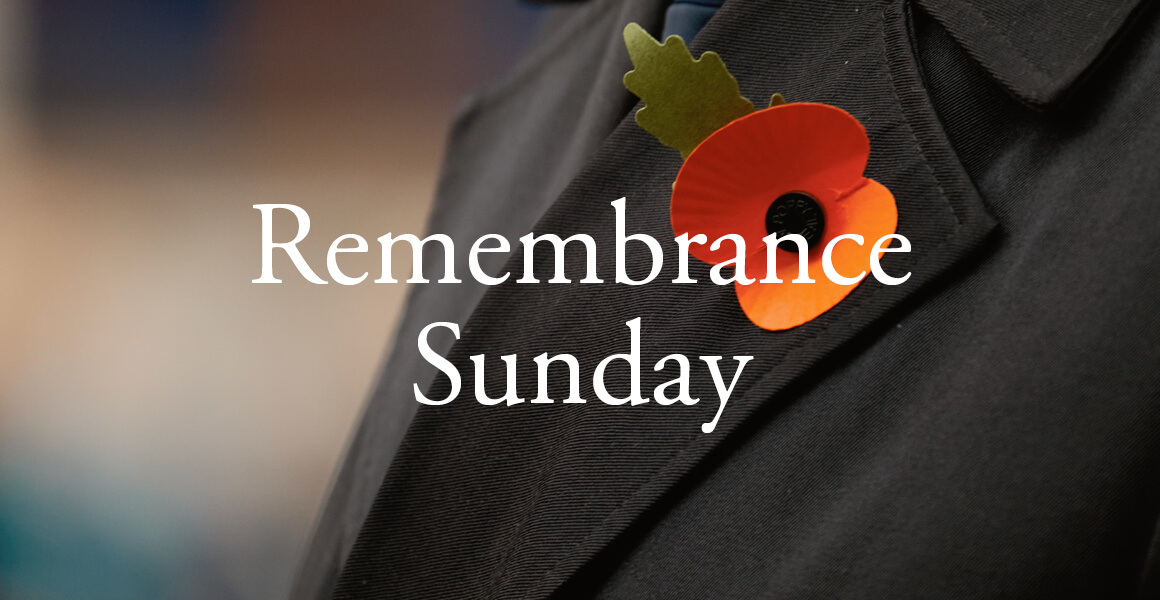
This Remembrance Sunday, mm*ers took time to reflect on the family members who served in the two world wars.
Here are their stories in their own words. Lest we forget.
Steve Turner, Co-founder
My grandfather, William Edward Joseph Turner, served in the army in World War II.
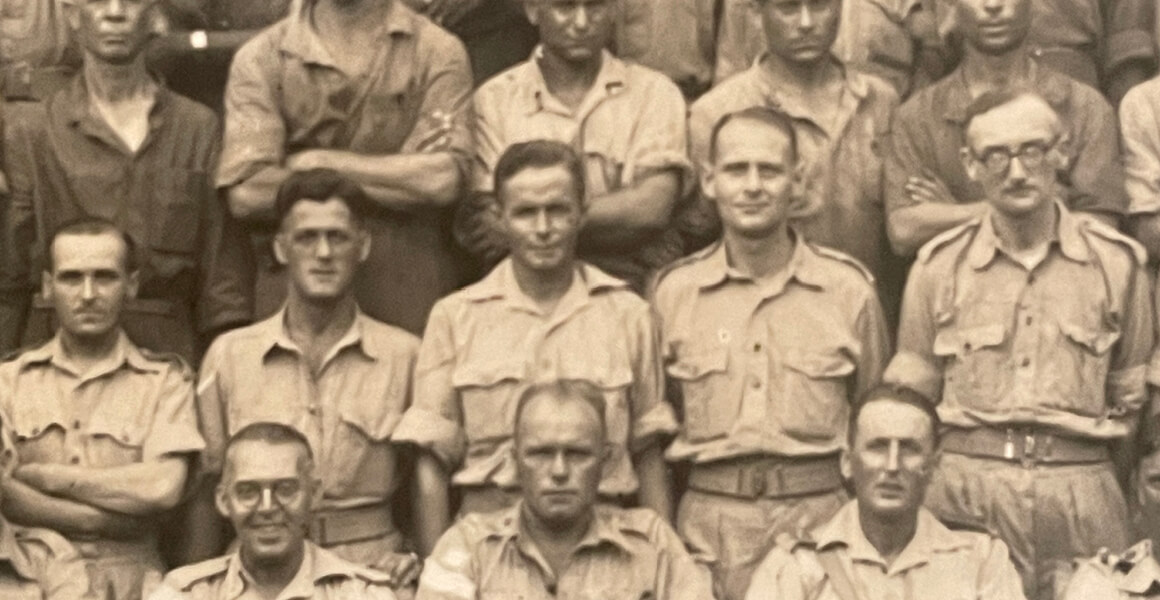
Around the time of this photograph, my grandmother was at home in Banbury, pregnant with their sixth child, my Dad (they went on to have a seventh). Here he is, in Sierra Leone in 1941/2.
He died in 1962 aged 57, ten years before I was born.
I’m always taken aback by what the war generation went through. And I’m so very glad to have this precious record of someone I was never lucky enough to know but whom I so admire, for all he saw and all he survived.
Megan Williams, Senior Designer
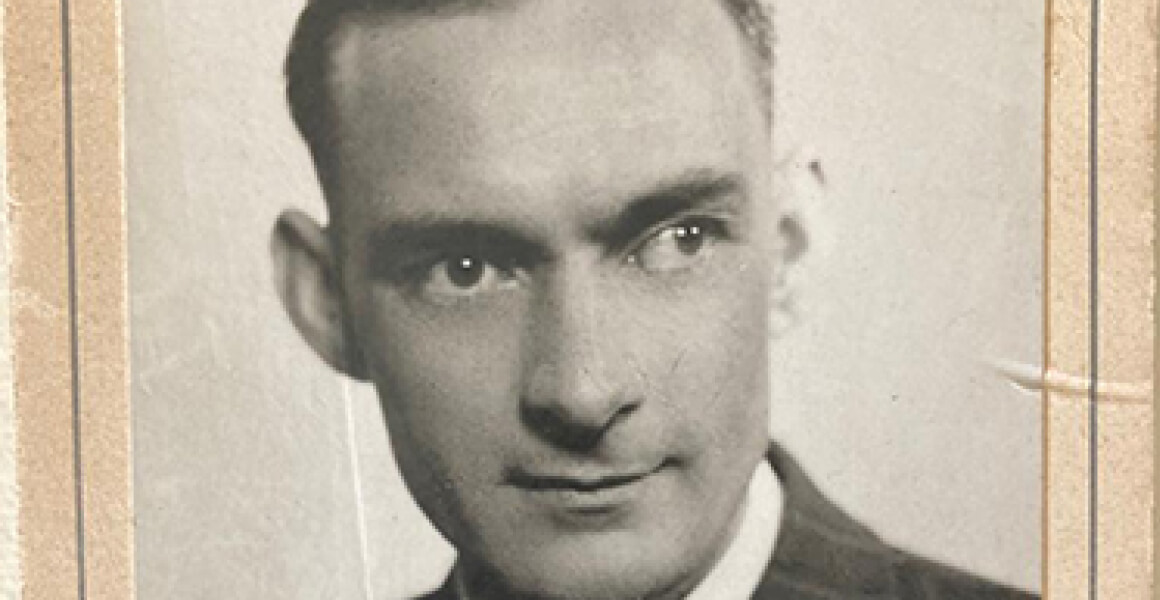
My mother’s father, James “Jimmy” Storey, was Irish but travelled to London to join the British Army at the outbreak of WWII when he was 24 years old. He became a Gunner in 79th Light Anti-Aircraft Battery (“The Sparrows”), but was captured by the Japanese in Timor (Southeast Asia) in 1942. He remained a P.O.W. until the end of the war.
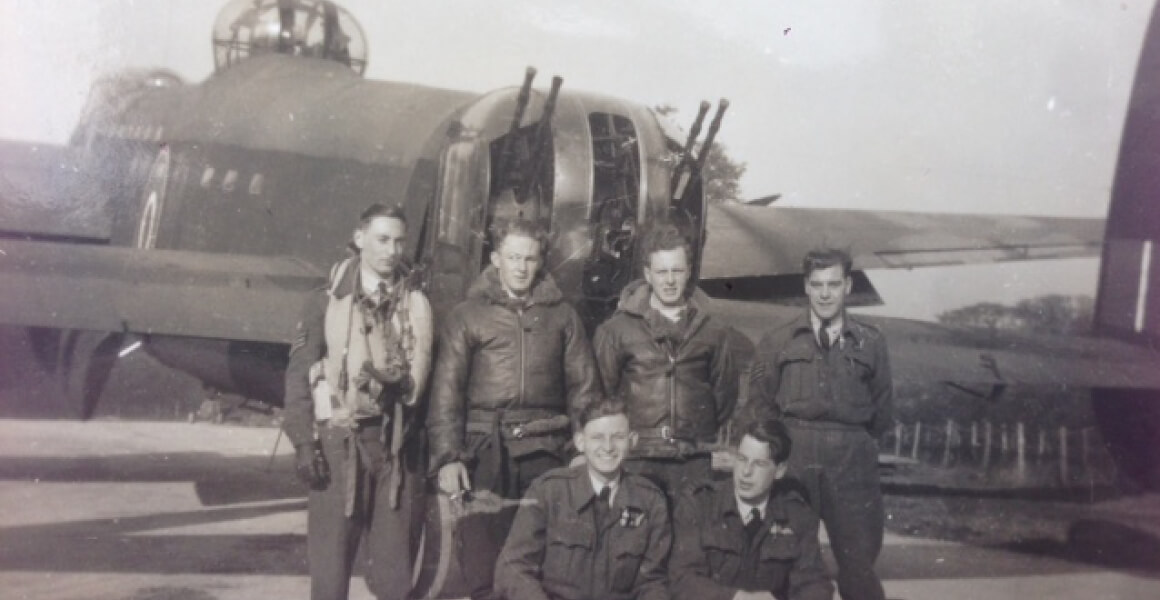
My father’s (Welsh) father, John Williams, then 21, left his studies at Oxford when war broke out. He was commissioned in the 10th Battalion of the Royal Welch Fusiliers, but in 1941 was recruited by the RAF, and went on to become a Lancaster pilot in 61, and later 617 (“Dambusters”) Squadron (after the famous dam busting had occurred). He was awarded the Distinguished Flying Cross.
Both my grandfathers survived the war, but experienced its end in very different circumstances. During the conflict, John met my Grandmother, Mary (who I think was in the WVS at the time), and they married on August 15th 1945 – better known as Victory over Japan Day. My grandmother wrote in her diary: “A wedding on VJ Day. What a thrill.”
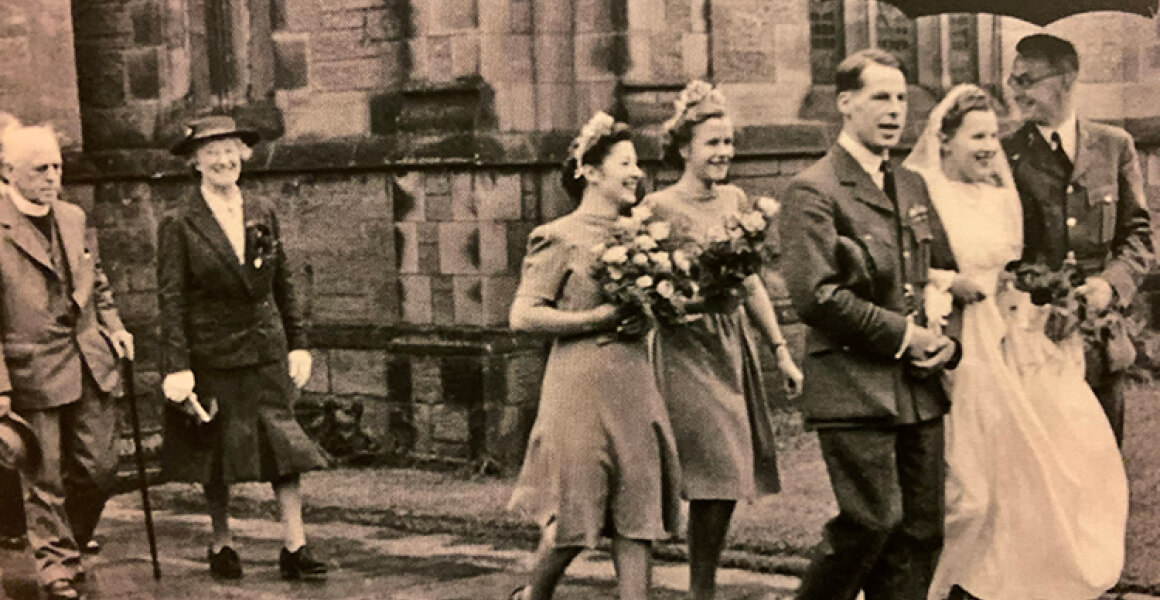
In contrast, at this time Jimmy was still in a camp with his fellow prisoners, malnourished and living in terrible conditions. In notes written decades later, he said of hearing of the war’s end – “We were too far gone to cheer. Just relief that we had made it, and sorrow for our mates that hadn’t.”
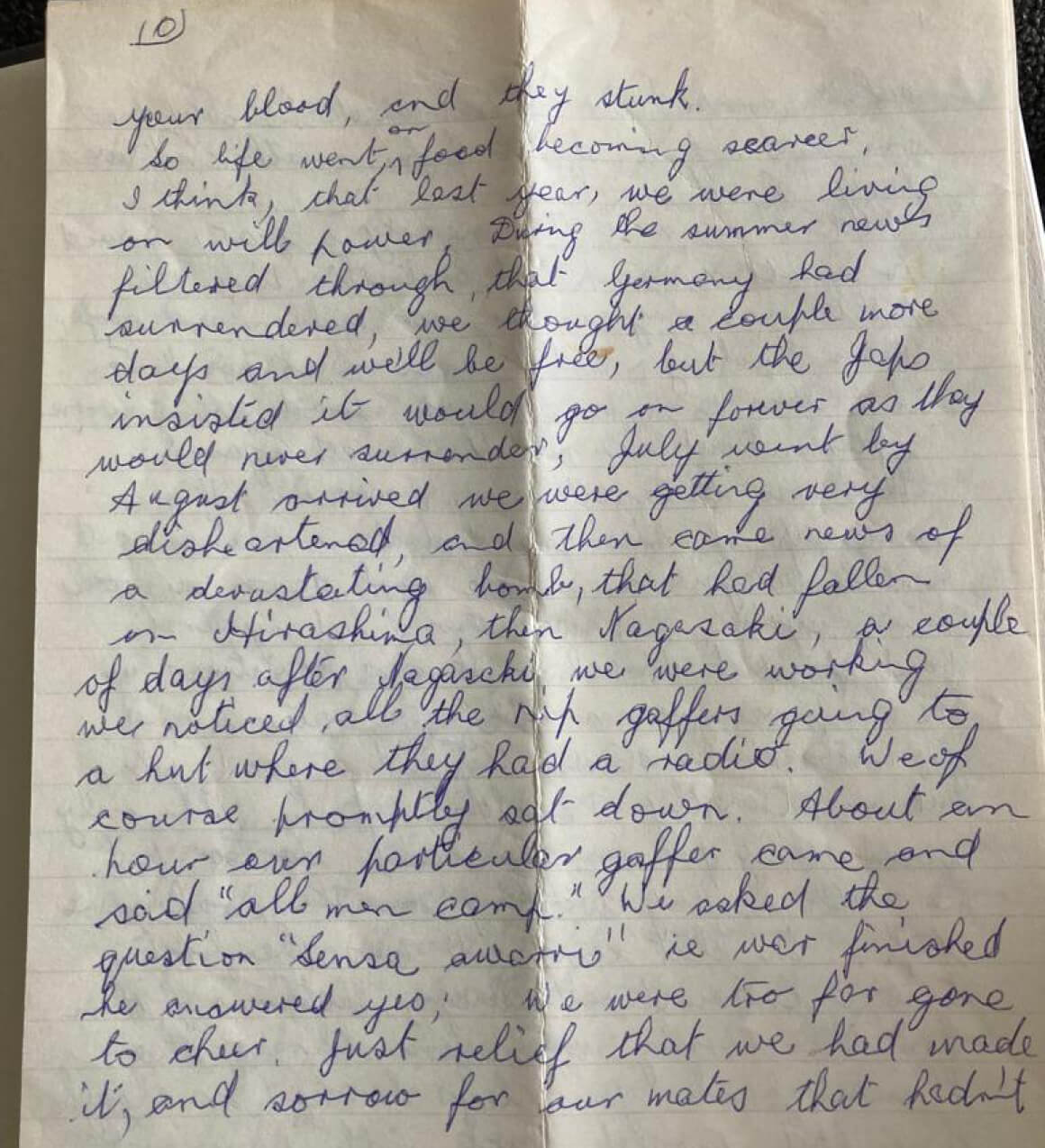
Russ Holt, Head of Production
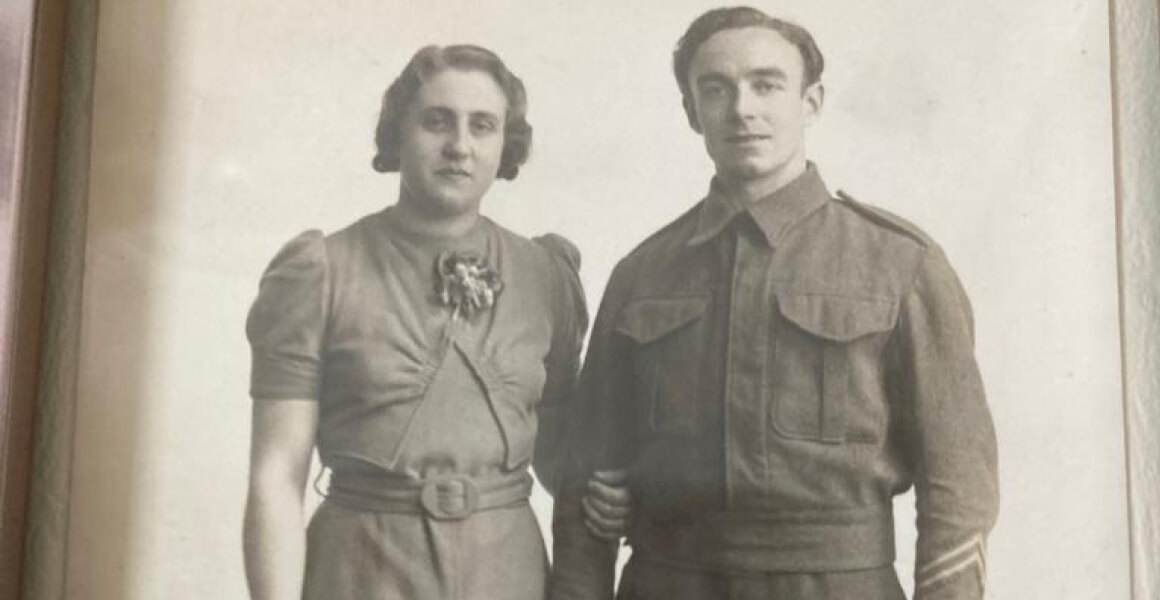
My grandfather, Lloyd George Fothergill, came from Rugby.
In WWII, Grandad Lloyd fought with the Royal Warwickshire Regiment and worked as a saddler. At one point he was batman to Field Marshall Montgomery. As a child, I remember seeing souvenirs he ‘acquired’ from Germany. These included a few large Nazi banners!
He married Dorothy and, after the war, they had two children, my Mum Leona, and my uncle Christopher. They emigrated to Australia but returned when grandad caught polio. I always knew him as Grandad Toby, and Dorothy as Grandma Toby, solely because they owned a black and white cat…called Toby.
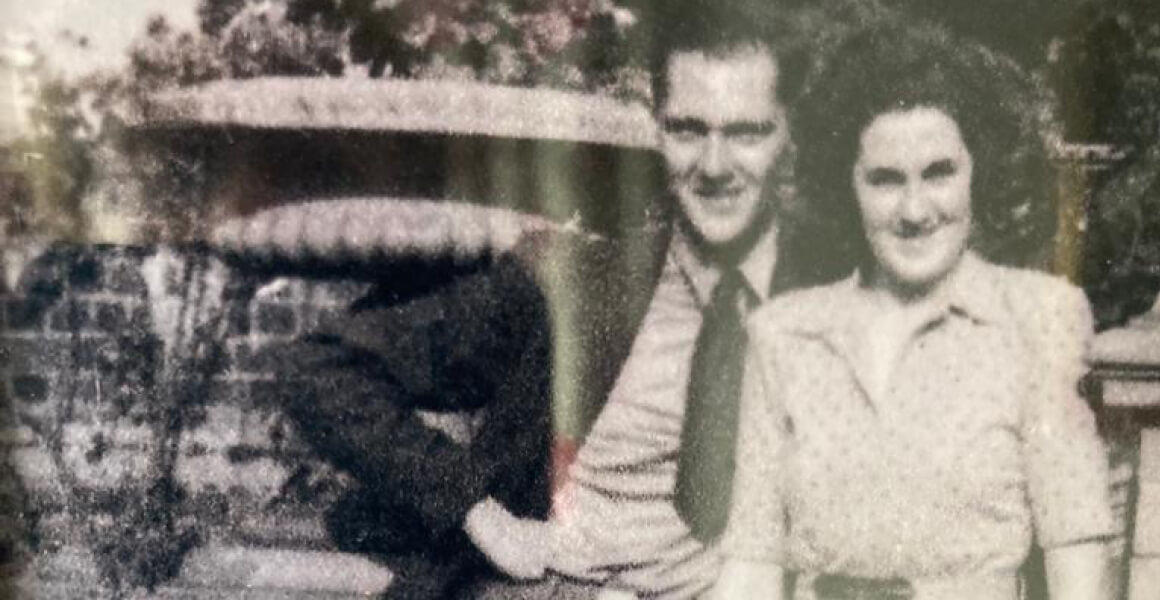
My grandad, James Holt, spent WWII as a radio operator on an Anti-Submarine Frigate. He married Millie Mound and they lived in Malvern. I knew her as Grandma Cars because of the basket of cars she’d put out for me when I was small. They divorced before I was born, so I, sadly, don’t know a lot about him.
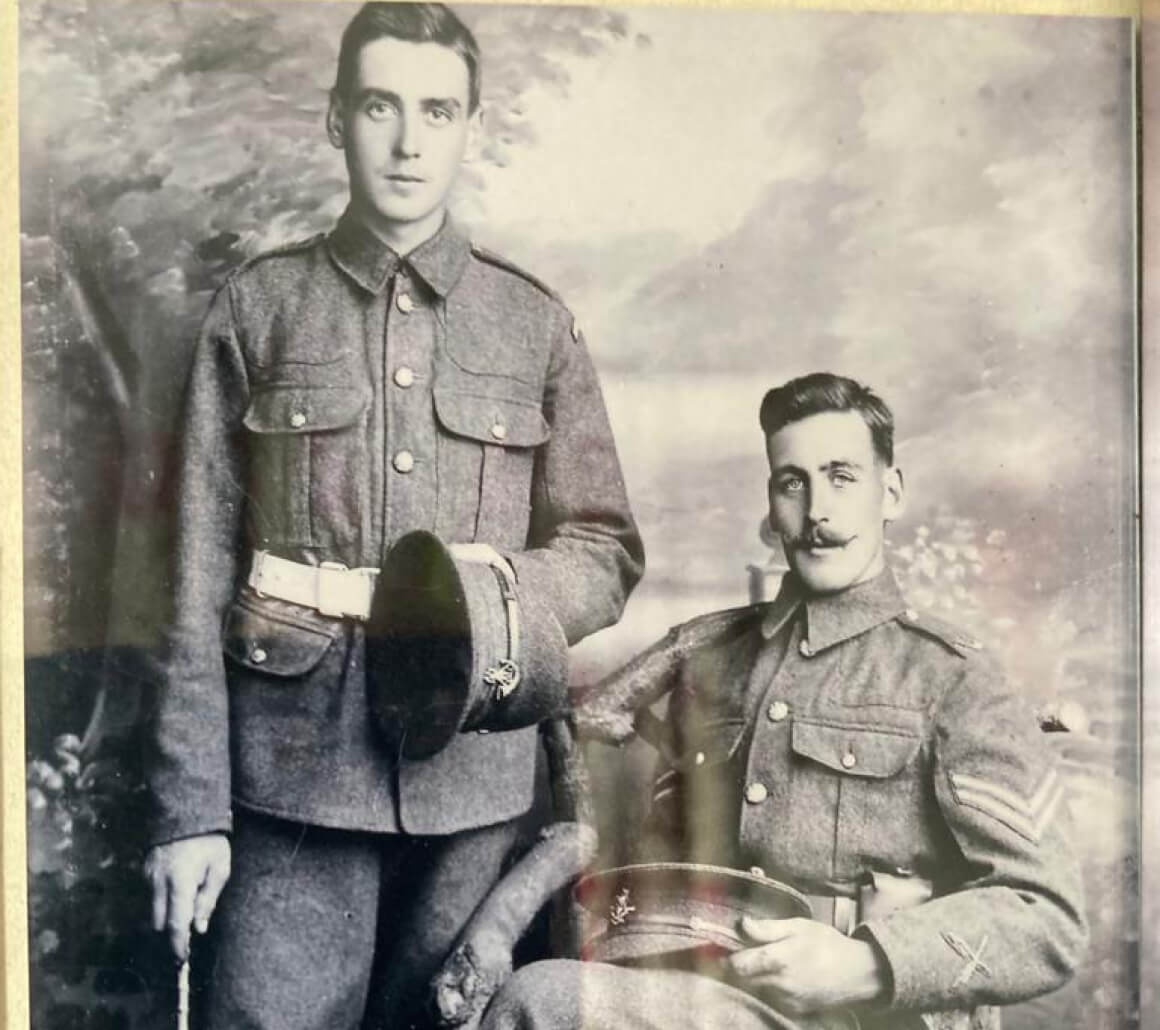
Grandma Cars’ Dad, Francis Mound (seated), and his brother Archer served in WWI as part of the Machine Gun Corp. They also came from Malvern. I don’t remember any stories from this side of the family. But we did name our eldest son after Archer Mound.
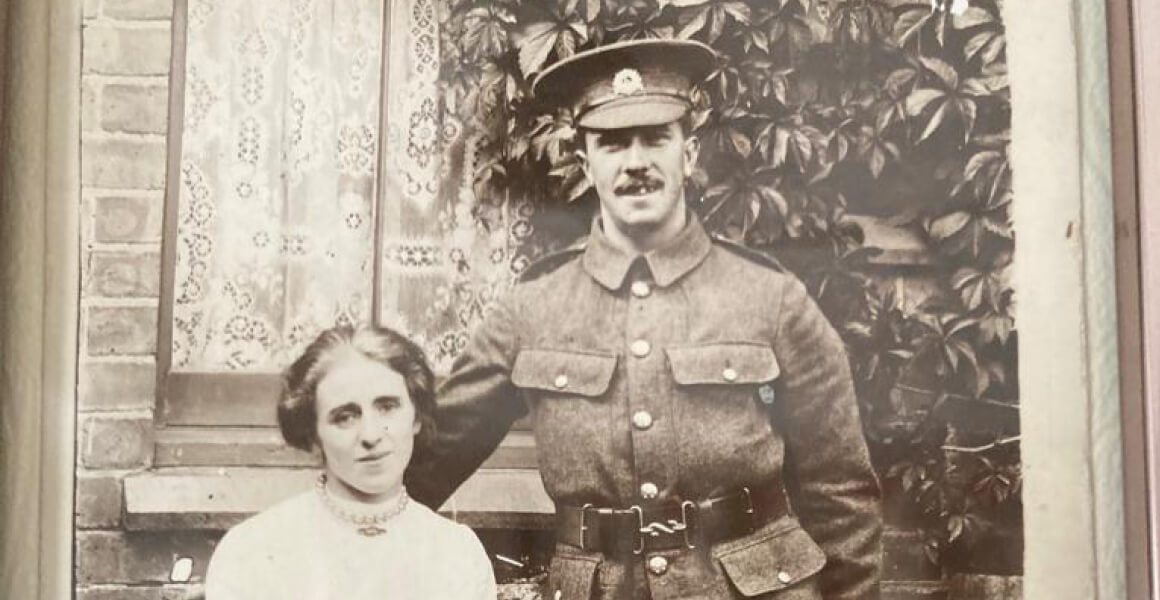
My great-grandfather, Frederick Leonard Crawley, is pictured here with his wife. He was Grandma Toby’s Dad. We’re not sure who he served with but we think it was possibly the Royal Warwickshire Regiment.
These photos are a wonderful connection to the past, and a reminder of all the ways these brave individuals contributed, not just to the war efforts, but to building our family tree.
Anna Glynn, Copywriter
I only have the happiest of memories of my grandfathers, Paddy and Bob, and the love they lavished unstintingly on their grandchildren. They were brilliant apart, but they were incredible together, when they’d bond over beer, music, their mutual dedication to Tottenham Hotspur Football Club and their love for us.
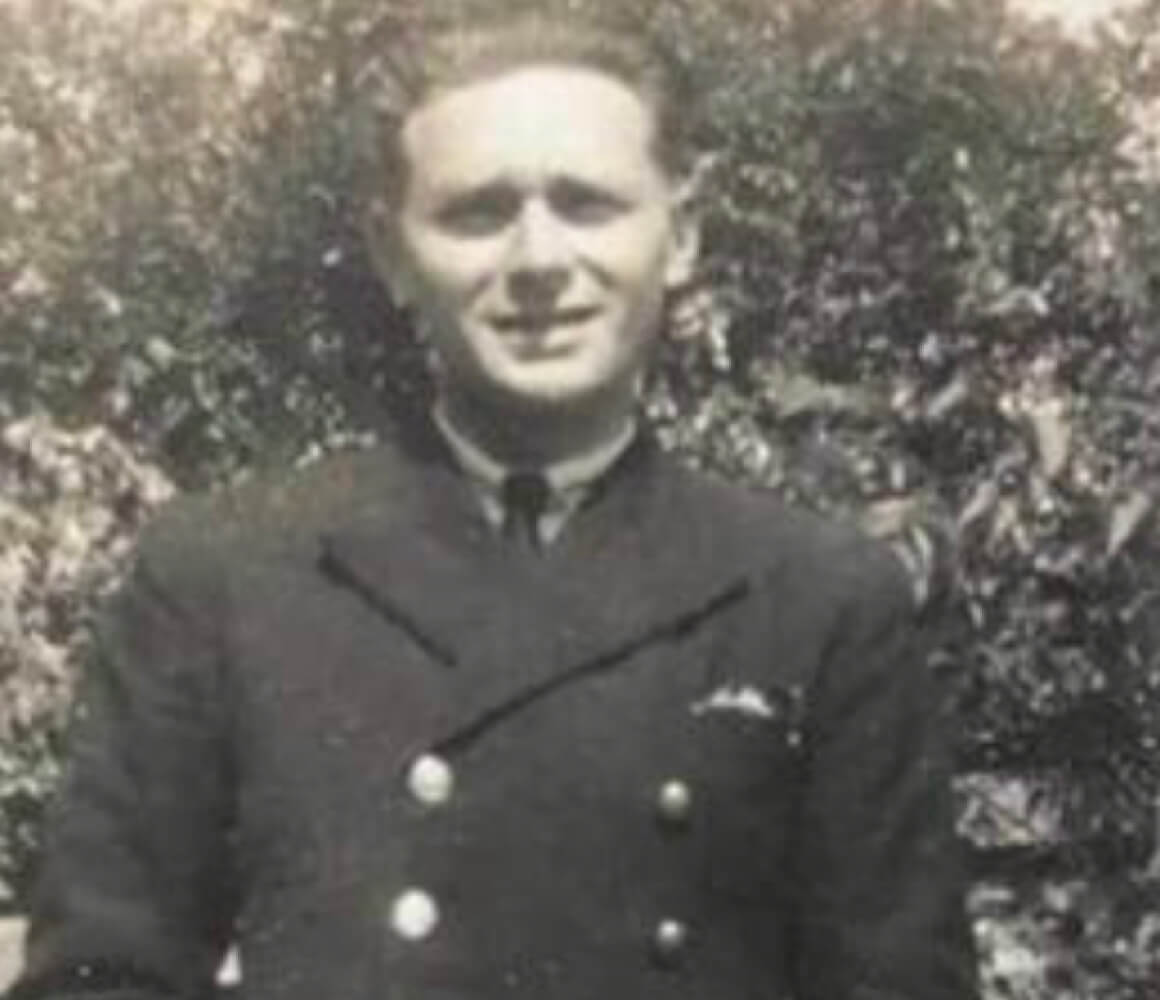
Patrick Gerard Lourdes Glynn, born Limerick, Eire, 1920, died Woodstock, Oxfordshire, 2004
Being Irish, Paddy had no formal compulsion to join up and I don’t know why he did. I’d like to believe he wanted to fight fascism. I suspect it had more to do with escaping his domineering mother and a religious revival in the west of Ireland and for, let’s face it, the adventure.
He joined the Merchant Navy as a radio operator and travelled to South Africa, India and New York – further than any working-class Irish boy could previously have expected to go. It must have been thrilling and terrifying in equal measure.
The few stories he shared were sliding-doors moments – like the time he flipped a coin for the last place on a ship to what was then known as Calcutta. He lost the toss and his friend – who had a girlfriend there he wanted to visit – took the place, only to perish when the boat was destroyed by a torpedo. Strange to think that my existence hinges, in part, on the flip of a coin.
He was offered his medals in later life and turned them down. A pacifist to the end, he wanted no part in what he saw as the glorification of that terrible conflict.
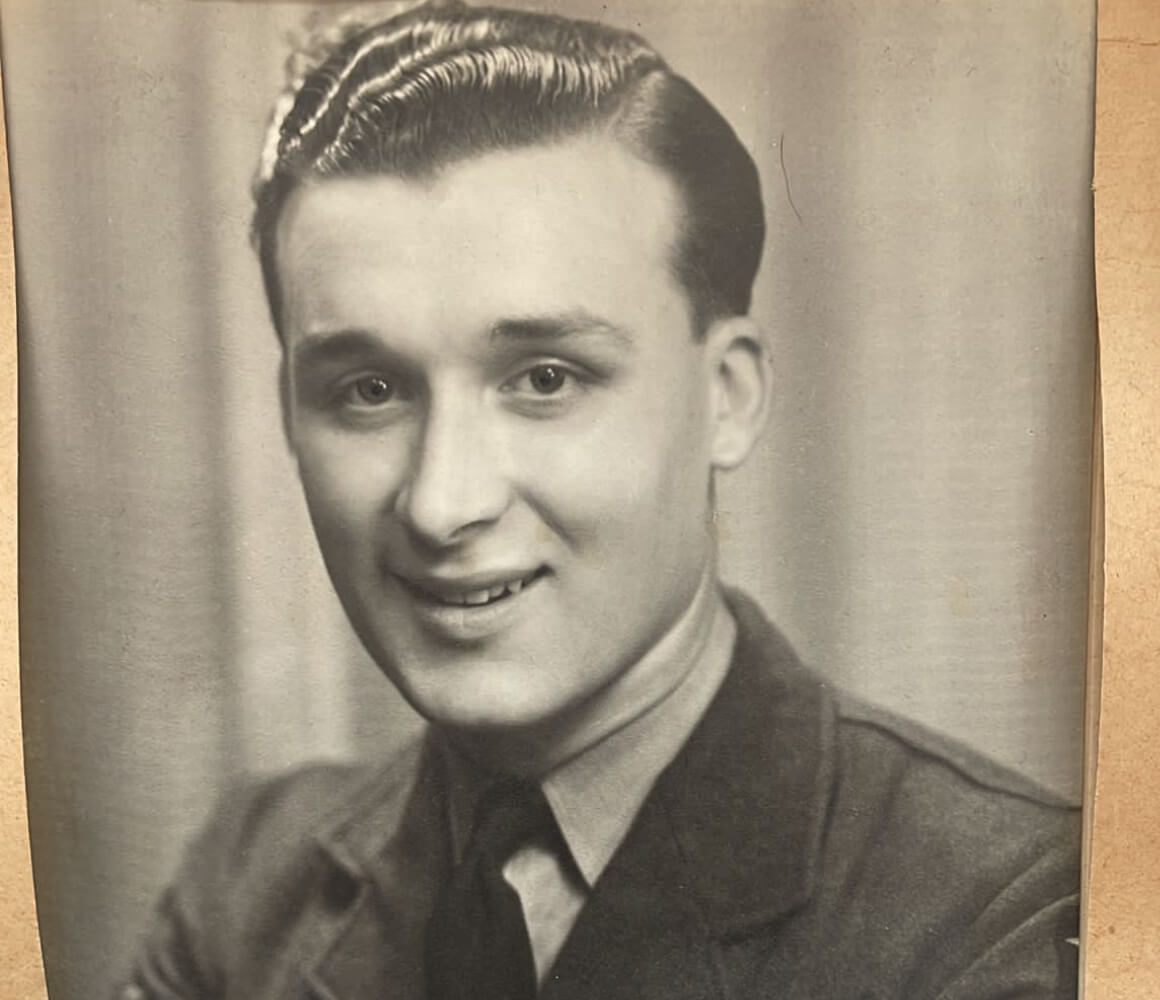
Robert David Wadham, born Edmonton, 1925, died Stoke St Michael, Somerset, 1994
Keen to serve his country and definitely in part to get his wings, Bob signed up as soon as he could. Sooner, in fact. At over six foot, he was able to lie his way into the RAF before he was old enough. To the fury of his mum, Ethel Maud, he claimed, in 1942, to be 18, when he was, in fact, just 17.
This ruse could well have stopped him from reaching adulthood at all. He was assigned to bomber command, flying as part of a Halifax crew targeting German towns and cities. He never talked about his wartime experiences, but the stats are horrifying. 51% of crews were killed in operations. Only 24% came home unscathed. The fact that I knew my grandad at all, and with all his limbs intact, is something of a miracle.
In contrast to Grandad Paddy, Grandad Bob’s pride in his squadron and his role in the war were constants. Somewhere, there is a very odd photo of some of his granddaughters saluting, wearing custom-made t-shirts that read ‘My Grandad flew Halifax bombers”. His fidelity to 78 Squadron remained to the end: his final wish was granted when he was buried in All Saints Churchyard, Bubwith, Yorkshire, 78 Squadron’s hometown during WWII and the site of their memorial.
To have seen the worst of humanity, and to have only ever seen the best in us is something I’ll always love them for. Two of the best.
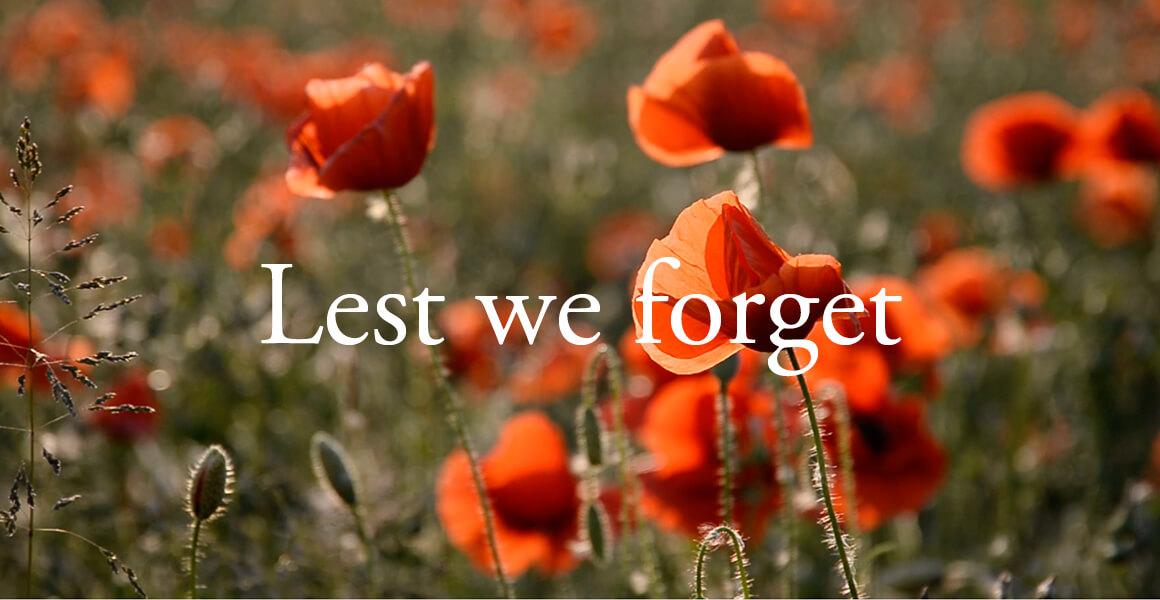
About markmaking*
markmaking*
mark-making* is an award-winning creative agency specialising in branding, campaigns and communications